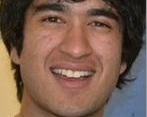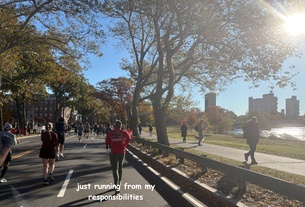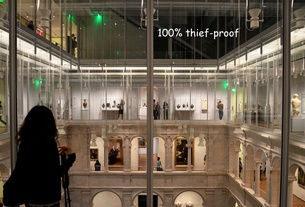Research
Potato Chips Linked To Greatest Gains in Weight
Potato chips were associated with the heftiest gain in weight in a Harvard School of Public Health study published Thursday that explored the effects of diet and lifestyle factors on weight gain.
Sophomore Wins Thiel Fellowship
A former Mather sophomore is on the fast track towards joining the growing list of Harvard drop outs who made it big after leaving Harvard.
Gates Grant Funds Soil-Based Power
The School of Engineering and Applied Sciences has won $100,000 to harness the electrical power generated by microbes in the soil beneath our feet.
Harvard Students, Alumni Publish Guide to Science Research
The main goal of the book, the team says, is to inspire a younger generation of students to discover a love of science and to become involved in science research.
Researchers Find 11 Malaria-Resistant Genes, Potentially Revolutionizing Treatment
A team of researchers from Harvard and the Broad Institute at MIT identified 11 genes that are implicated in the malaria parasite’s notorious ability to rapidly evade drug treatments—a discovery that could revolutionize malaria treatment.
Astronomer Talks Asteroid Strikes
Timothy B. Spahr, director of the Minor Planet Center at the Harvard-Smithsonian Center for Astrophysics, dispelled Hollywood conceptions of space in a talk last night about his work identifying asteroids whose trajectory may pass near earth.
Controversial Peretz Fund To Be Allocated
Juniors will find out next week whether they will receive a portion of the $19,000 planned to be disbursed for senior thesis research through the Peretz fund, which faced controversy in the fall due to statements made by its namesake.
Brain Nodes Predict Alzheimer’s
The sizes of nine critical regions in the brain may serve as predictors for Alzheimer’s disease, according to a new ...
Federal Budget Cuts Research, Education Funding
The federal budget for the last six months of fiscal year 2011 calls for significant cuts in research and education, which may impact Harvard’s ability to fund its programs.
Progress Made on AIDS Vaccine
A medical breakthrough in HIV prevention could eventually lead to the development of an AIDS vaccine, due to a recent discovery by researchers at the Harvard-affiliated Dana-Farber Cancer Institute.
Teaching Disrespect
Graduate students are taught that teaching is not important. The reason graduate students aren’t required to teach more is that faculty want them in the lab or the library doing research. Research is what earns you a job, tenure, and worldwide renown; teaching is a distraction.
Expert Analyzes Water Supply in São Paulo
A Brazilian hydrology expert called for a holistic approach in solving São Paulo’s water supply vulnerability in a lecture at the Center for Government and International Studies yesterday.
Electrical Fields Might Fight Fires, Researchers Say
Harvard researchers have recently discovered a novel method for fire suppression using electrical fields—a finding that may have implications for firefighting because it does not rely on the rapid delivery of physical suppressants such as water, powder, or carbon dioxide to the site of a flame.
After Quake, Geology Research at Harvard Assumes New Urgency
Professors leading research initiatives in earthquake science at Harvard say there were prior indications of the earthquake that hit Japan two weeks ago, but that they were taken aback by its 9.0 magnitude






